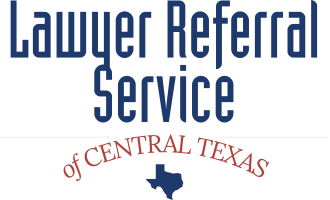Did you know that specific individual or the general public can legally use certain types of privately owned land for various purposes such as drainage or rumbling? To comprehend how this is done, you need to understand the law of easement.
But, what is an easement and how does it come into play in the real estate industry? According to a real estate attorney in Texas, an easement is a legal right to use another person’s land for a specific limited purpose.
In simple terms, if an individual is granted an easement, (s)he is given the legal permission to use the property. However, the legal title to the land remains with the rightful owner of the land. In most cases, an easement is granted to various utility companies to run cable lines or power lines.
Types of Easements
The Texas law sets out two main types of easements:
Easement in Gross
These are types of easements that mainly give various benefits to specific parties, regardless of the type of property. Conversely, any party that benefits from this type of easement can’t transfer the rights to another party.
A real estate lawyer in Texas confirms that this type of easement will mostly come into play when, for example, a utility company wants to run cable, gas, or power lines on the property. That specific utility owns the easement and can’t transfer the rights to any other party.
Easements in Appurtenant
Instead of benefiting a specific person, easements in appurtenant tend to “run with the land,” and therefore, it will benefit whoever owns a particular property. In simple terms, this type of easement is quite inseparable from the property owner and will pass on from one property owner to the next unless something happens to stop the easement.
A Texas real estate lawyer says that a typical example of this type of easement is the driveway. An easement in appurtenant can happen when neighbor X has no other way to access his/her land by car except via neighbor Y’s existing driveway.
Y can grant X and easement in appurtenant allowing X to use Y’s driveway. If neighbor X ever sells their property, the new owner will automatically inherit the right to use Y’s driveway. This is the most common type of easement that any real estate attorney out there will deal with.
However, it is good to keep in mind that both types of easements have serious legal implications that property owners must carefully consider before granting them. If need be, find a real estate attorney to offer you legal advice on what you are supposed to do and how you are supposed to approach the whole issue of easements.
Easement Disputes and Litigation
Disputes are bound to arise wherever an easement exists since one party may have a different opinion about the easement. Possible issues that may lead to disagreements include:
- Two property owners can fail to agree on specific terms of an easement.
- A property owner may try to block legitimate and legal use of their land under a legal and valid easement.
- Property owners may even deny the existence of an easement and try to prevent any third party from using their land.
If you encounter any of these issues, make sure that find legal advice from an Austin attorney to help resolve the easement dispute between you and the other party.
Do You Need a Lawyer?
If you are ever involved in any row over an easement, either as the legal property owner or the owner of the legal right to the easement, make sure that you talk to a real estate attorney in Austin to discuss your legal rights and all the possible remedies. Contact the Lawyer Referral Service of Central Texas (LRS) today to get in touch with experienced real estate lawyers who are ready to help you resolve all of your easement disputes. LRS services the Central Texas area, including counties of Travis, Bastrop, Williamson, and Hays.




